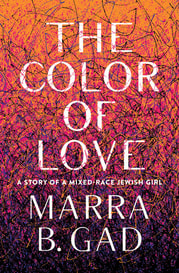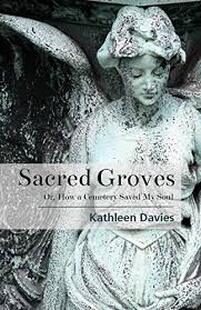Author Kazim Ali reminds us that, like layers of sediment in the earth, generations of lives are inscribed within the land around us. In his memoir Northern Light: Power, Land, and the Memory of Water, Ali weaves a detailed meshing of historical events, personal accounts, and his own experiences as he searches for answers to the series of questions that led him to Cross Lake and the Pimicikamak community.
0 Comments
After seeking help from numerous doctors and specialists, Esme Weijun Wang couldn’t shake the feeling that something was being missed.
Finally, there was a breakthrough during her college years when she was first diagnosed as bipolar the summer before she left for New Haven. And then when her medical records were sent to Stanford she explains, “In the referral authorization itself, I was listed as having two diagnoses: schizoaffective disorder, bipolar type and idiopathic peripheral neuropathy. There was no mention of fibromyalgia, complex PTSD, dysautonomia/POTS, chronic Lyme disease, or any of the other diagnoses I’d received over the years” (185). Esme Weijun Wang’s 2019 essay collection The Collected Schizophrenias is an engaging journey that deals with a serious topic. The book does a thorough job of educating the reader in this area of health that is commonly misunderstood. The relationship between the author and the text is beautifully captured by including both clinical information and her own personal struggles and triumphs.
“There are two things that happen when someone is trying to decide [...] where they are going to put your otherness,” Marra B. Gad writes in her new book The Color of Love. “For some, there is a blankness in the eyes that takes over, as if they are lost in thought,” but for others, “there is an immediate narrowing, a sharpness that engages. And it is because they don’t need to think.” For Marra, these two reactions encompassed much of her world. In the prologue, Marra describes her background as a mixed Jewish woman, half white and half black, who was adopted by a Jewish family in 1970. To Marra, the labels she identifies with don’t matter, shouldn’t matter, yet, “For many, identity is literally a black-and-white matter.” Something that is, or isn’t.
In her memoir Sacred Groves: Or, How a Cemetery Saved My Soul, Kathleen Davies examines the concept of identity through the lens of a novice female professor. Through her experiences as an outcast and stepping into new territories, Davies finds her purpose in life—ironically in a Victorian graveyard. The cemetery magically holds parallel to her internal battles in ways that are enlightening and serve as a heaven on earth in a world full of uncomfortable encounters. Not only does her muse scream at her, surrounded by mesmerizing architectural beauties in nature, but she has a self-awakening among her observations. Told with poems, witty snippets from her journey, and photographs of headstones and mausoleums taken with her own camera, Davies breathes life into the inanimate statues and lifeless tombs, making the local graveyard her “feminine space,” almost like a garden. By describing such a serene place using textures and voiced appreciations, Davies not only provokes imagination for herself, but also for the reader. She remarkably navigates through the unknown and speaks her truth with such vulnerability, revealing that through suffering, humans often find hidden truths.
“You didn’t come into this world. You came out of it, like a wave from the ocean. You are not a stranger here.” This Alan Watts quote prefaces William Glassley’s nonfiction book A Wilder Time.
Watts was a 20th century Buddhist and spiritual lecturer who talked about the non-existence of self and the necessity of a return to nature in order to dissolve artificial, man-made divisions. Glassley, a geologist, takes his own Wattsian spiritual journey into the Greenland wilderness. Although Glassley’s scientific background comes across in his writing, it doesn’t outshine his poetic prose that captures the pristine, esoteric setting of an untouched land. |
Archives
April 2024
Categories
All
|
|
Glassworks is a publication of Rowan University's Master of Arts in Writing 260 Victoria Street • Glassboro, New Jersey 08028 glassworksmagazine@rowan.edu |
All Content on this Site (c) 2024 Glassworks
|






 RSS Feed
RSS Feed
